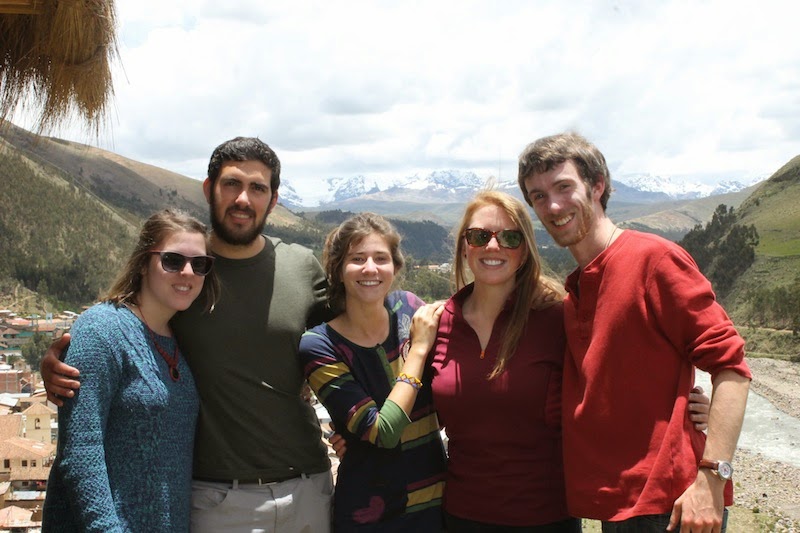So you probably know that I spent the last
two weeks in the town of Ocongate. Theresa and I were co-teaching and English
class for 38 students at the vacaciones útiles. We stayed with Victor
and Marta, two Spanish volunteers who recently arrived and will be in Ocongate
all year. It was a highly enjoyable and very useful time for me. Here's what I
take away from the experience
Teaching
Obviously, I went up to Ocongate to the work
of teaching. From JV perspective, the vacaciones útiles offer a chance
for new JVs to get some time in front of a classroom before the school year
starts. Because Theresa and I were co-teaching (instead of splitting the class
into two) I had a lot of opportunities to observe and learn from her teaching
style, and also plenty of opportunities to try and implement what I learned as
I led the class through an activity.
When I accepted a teaching placement with
JVC, I had some trepidations. I'm not trained as a teacher. I wouldn't have
accepted the position if I thought I couldn't do it. But after two weeks in
Ocongate, I don't just think I can teach, I know I can. Of course
I have much to learn and more room to grow than I understand, but I'm not
clueless at this. That's a powerful feeling.
Hay que compartir lo que hay
Our two weeks in Ocongate were marked by
lots of sharing. We shared meals and time. One of our first nights in Ocongate,
José, a Peruvian who was in charge of the communications class, came over for
dinner. He brought us a cuy (guinea pig). Cuy is delicious, and
considered a delicacy; it was a very generous gift to share. When we thanked
him, José said “hay que compartir lo que hay” (you have to share what
you have).
I really like that saying. It reflects an
attitude that is very common here. People here are quick to offer from what
they have. I've talked about how impressed I was by my host family's
generosity, but I am coming to realize that such generosity is a cultural norm.
Generosity isn't rare in the United States, but it's less likely to reach the
depths so common here in the Sur Andina. This is something that I really
appreciate about this culture. As an outsider, it makes it easier to feel
welcomed and accepted. It's also something that I want to take back with me.
Hay que compartir lo que hay – you have to share what you have. It's not that it's nice to share
what you have, or that it's a friendly thing to share what you have. You have
to share what you have. It's a reminder that we have is ours only because it
under our control, our stewardship. And it's an encouragement to reach out, to
welcome, and to find joy of being with others.
Cuy is very
good. But I think that José felt that sharing the evening with Marta, Victor,
Theresa, and I was better than eating a whole cuy by himself.
God's team
JVC works with about 400 volunteers across 7
countries. The world is much too big for JVC to be everywhere. But there are so
many other programs across the globe that are equally as dedicated to doing
simple, unglorified work with the poor.
In Ocongate I started to think about what it
means to be on God's team. We may be stationed in different places, with
different work, but all of us are on the same team. Victor and Marta, Spaniards
who aren't practicing Catholics, have been sent to Ocongate with a Jesuit
volunteer program. Theresa and I, practicing US-American catholics, have been
sent to Andahuaylillas with a different program to do different work. Yet we
are all working for the same end goal. We are all here to serve, all here to do
what we can.
No one person has to save the world, because there are teams of people doing little bits of the necessary work everywhere.
 |
| Ocongate viewed from the Mirador (look-out) |
 |
| The Ocongate Vacaciones Útiles Team Marta, Victor, Mireia (Spanish volunteer visiting from Tacna), Theresa and me |
No hay comentarios.:
Publicar un comentario